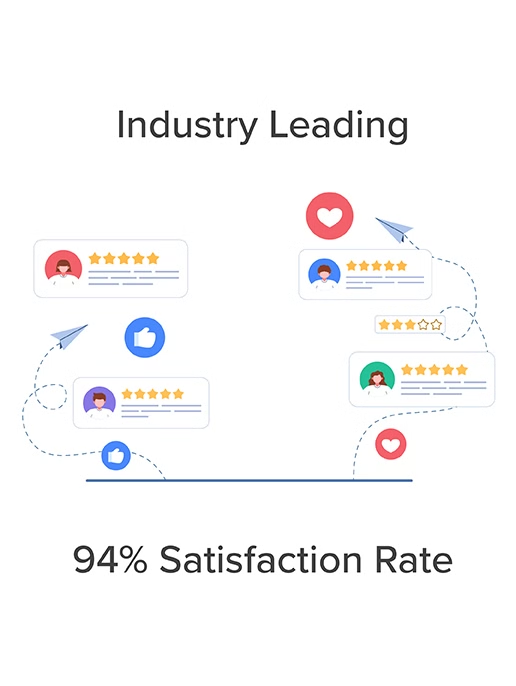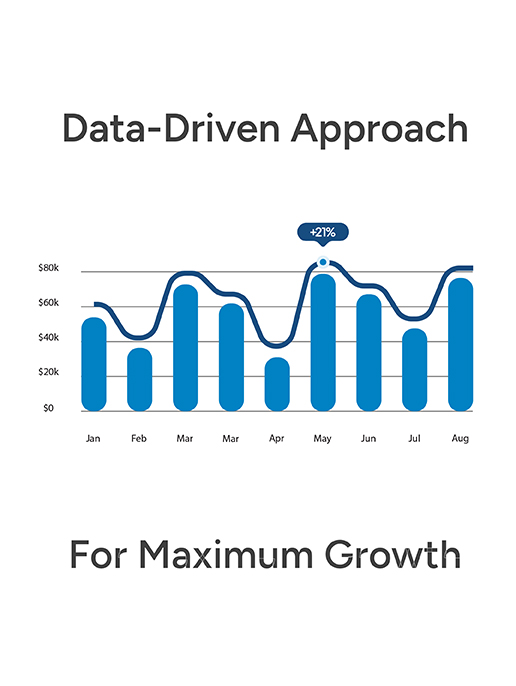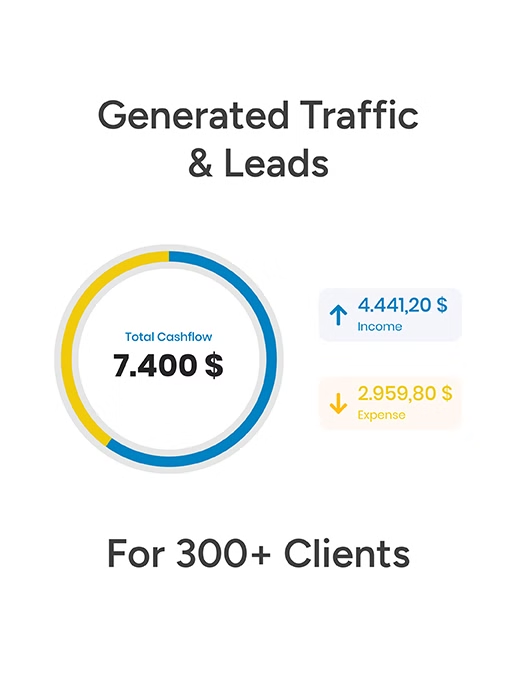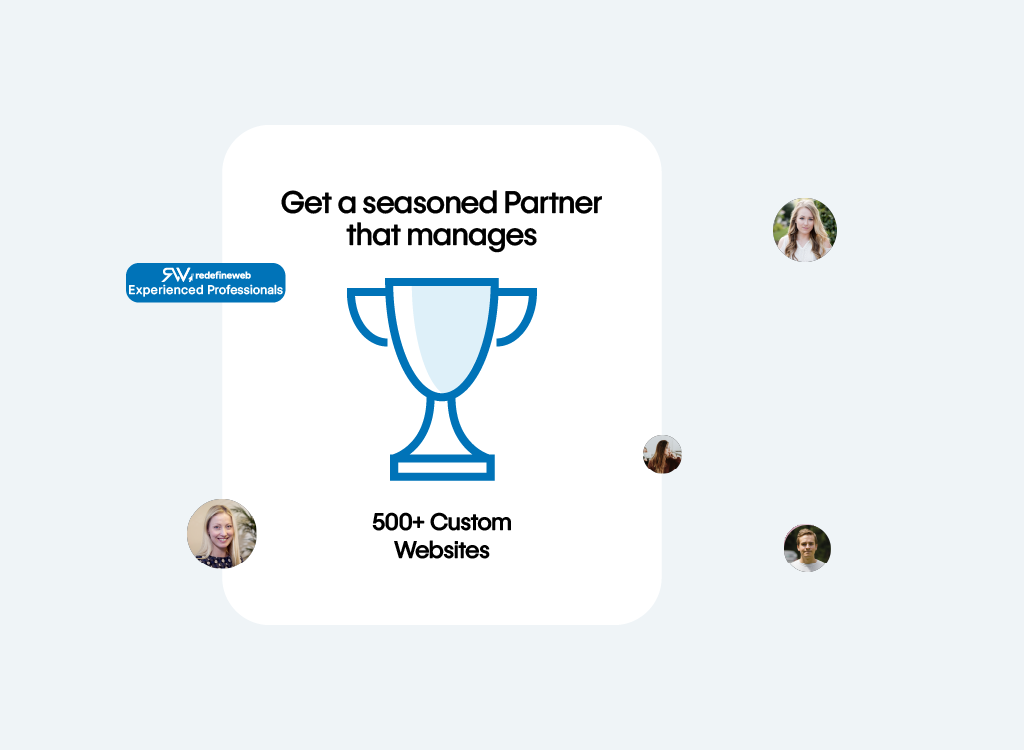


A professional dental website can cost anywhere from $4,000 to $10,000 when built by a typical web development agency. For many dental practices, this creates budget limitations that can slow down marketing efforts and reduce online visibility.
Instead, choose one of our dental website packages and get started with a free starter website. We’ve tailored these plans to address the most common challenges dental professionals face online—including design, development, SEO, and content creation specifically for dental services.
With our comprehensive website packages for dentists, we handle the technical details so you can focus on what matters most—providing excellent care to your patients.

A professional website is essential for any dental practice. However, even the simplest website builder can take hours before you can launch a site that truly reflects your practice’s professionalism and care.
At Redefine Web, we offer all-inclusive website solutions designed specifically for dentists—covering everything from design and development to SEO and marketing.
We work closely with you to understand your practice, your patients, and your growth goals. Our comprehensive approach ensures your dental website attracts new patients, builds trust, and helps you compete effectively in your local market.
Dentists often feel frustrated by the lack of affordable, effective options for building a high-quality dental website. Many website packages come with hidden fees or rising costs after the first contract term — making it difficult to plan and grow confidently.
Instead of spending hours comparing generic website builders, partner with our experienced dental website design team to create a professional, patient-focused website that showcases your expertise and helps attract new patients to your practice.
Most importantly, we design every dental website with future growth in mind. Need to add an online booking feature, patient forms, or service pages? Simply reach out to us — we’ll help you implement it seamlessly.

| Feature | Essential | Growth | Business | Custom |
|---|---|---|---|---|
| Design/Retainer Hours | 5 Hours (One-time) | |||
| Security Patches | ✓ | ✓ | ✓ | ✓ |
| Full-site backup | Monthly | Weekly | Weekly | ✓ |
| Security Scan | Monthly | Weekly | Weekly | ✓ |
| Server Migration | ✓ | ✓ | ✓ | ✓ |
| Copywriting | ✓ | ✓ | ✓ | ✓ |
| Keyword Research | ✓ | ✓ | ✓ | ✓ |
| Blog Posts | ✓ | 1 | 1 | 1 |
| Text Updates | ✓ | ✓ | ✓ | ✓ |
| On-page SEO | ✓ | ✓ | ✓ | ✓ |
| Photos Update | ✓ | ✓ | ✓ | ✓ |
| Off-page SEO |
| Feature | Essential | Growth | Business | Custom |
|---|---|---|---|---|
| Server Side Caching | ✓ | ✓ | ✓ | ✓ |
| HTTP Protocol | ✓ | ✓ | ✓ | ✓ |
| OpCache | ✓ | ✓ | ✓ | ✓ |
| Mod_Expires | ✓ | ✓ | ✓ | ✓ |
| Browser Cache | ✓ | ✓ | ✓ | ✓ |
| Brotli Compression | ✓ | ✓ | ✓ | ✓ |
| CDN | 82 POPs | 82 POPs | 82 POPs | 82 POPs |
| Feature | Essential | Growth | Business | Custom |
| Email Forwarders | ✓ | ✓ | ✓ | ✓ |
| Catch-all Emails | ✓ | ✓ | ✓ | ✓ |
| Email Aliases | ✓ | ✓ | ✓ | ✓ |
| IMAP/POP3/SMTP | ✓ | ✓ | ✓ | ✓ |
| Autoresponders | ✓ | ✓ | ✓ | ✓ |
| Filters | ✓ | ✓ | ✓ | ✓ |
| MX/SPF/DKIM Records | ✓ | ✓ | ✓ | ✓ |
| Email Virus Scanner | ✓ | ✓ | ✓ | ✓ |
| Feature | Essential | Growth | Business | Custom |
|---|---|---|---|---|
| Design/Retainer Hours | 5 Hours (One-time) | |||
| Security Patches | ✓ | ✓ | ✓ | ✓ |
| Full-site backup | Monthly | Weekly | Weekly | ✓ |
| Security Scan | Monthly | Weekly | Weekly | ✓ |
| Server Migration | ✓ | ✓ | ✓ | ✓ |
| Copywriting | ✓ | ✓ | ✓ | ✓ |
| Keyword Research | ✓ | ✓ | ✓ | ✓ |
| Blog Posts | ✓ | 1 | 1 | 1 |
| Text Updates | ✓ | ✓ | ✓ | ✓ |
| On-page SEO | ✓ | ✓ | ✓ | ✓ |
| Photos Update | ✓ | ✓ | ✓ | ✓ |
| Off-page SEO |
We often send out our newsletter with news and great offers. We will never disclose your data to third parties and you can unsubscribe from the newsletter at any time.
Unfortunately, we’re unable to offer free samples. As a retailer, we buy all magazines from their publishers at the regular trade price. However, you could contact the magazine’s publisher directly to ask if they can send you a free copy.
You can create a new account at the end of the order process or on the following page. You can view all of your orders and subscriptions in your customer account. You can also change your addresses and your password.
No, you don’t have to create an account. But there are a few advantages if you create an account.
You never have to enter your billing and shipping address again
Find all of your orders, subscriptions and addresses in your account
Download invoices of your orders
No, we don’t have a physical store location at the moment. We accept only orders through our online shop and we’re shipping all orders with the Swiss Post Service. Please visit our shipping section for more details.
From time to time you will find us at design fairs and popup markets in Switzerland. Subscribe to our newsletter and you’ll receive the latest news.
To ensure fast, reliable performance for all clients, we set a soft traffic limit that easily supports the average dental practice. If your site starts attracting higher traffic — a great sign your marketing is working — we’ll help you seamlessly upgrade to a plan with greater capacity, faster speeds, and advanced marketing tools so you can keep growing without interruption.
Each paid plan includes domain-based email addresses (e.g., reception@yourpractice.com, billing@yourpractice.com) to give your communication a professional and trustworthy look. Dedicated inboxes for inquiries, billing, and patient coordination help your team stay organized and maintain a polished image.
Your package includes dedicated design hours for customizing your dental website. During this time, our designers tailor your chosen template to reflect your brand identity, specialties, and patient experience — from adjusting colors to fine-tuning layout and visuals. Need extra customization, like treatment pages or smile galleries? Additional design hours can easily be added.
Our design team uses these hours to ensure your site looks professional, consistent with your branding, and inviting to patients. We’ll personalize colors, structure, and imagery to create a cohesive, trustworthy feel. These hours set a solid foundation for your site, with options to expand or refresh designs as your practice grows.
Yes. If you’d like full ownership of your dental website and prefer to manage hosting yourself, our buyout option gives you complete control. We’ll hand over all design files, assets, and step-by-step guidance to ensure a smooth transition—letting your clinic grow on your own terms.
Most dental websites are completed within 30 days, depending on how quickly we receive your branding materials, text, and images. Custom or advanced plans—such as those including patient forms, galleries, or marketing integrations—may take longer. You’ll always receive a clear delivery timeline before we begin.
Yes, you’ll need to supply your practice’s copy, team bios, and photos. But if you’d rather we handle it, our SEO and copywriting team can craft persuasive, keyword-optimized content that highlights your services and attracts more local patients searching for dental care.
Absolutely. Every dental practice has different goals and needs. Choose from powerful add-ons like Local SEO optimization, Google Ads management, or custom-written treatment pages for services such as implants, whitening, or Invisalign. You can easily scale your site anytime as your practice grows.
We guarantee 99.9% uptime on all hosting plans, so your dental website is always available when patients are searching for you. Each plan includes SSL encryption, malware protection, and 24/7 monitoring for secure, uninterrupted performance—at no extra cost.
Heat mapping tracks how visitors interact with your site—where they click, scroll, or spend the most time. For dentists, this reveals which pages (like appointment forms or treatment details) attract the most attention, helping us fine-tune your site to boost patient inquiries and appointment conversions.
UX (User Experience) analysis helps identify what makes your site easy—or difficult—for patients to use. We evaluate navigation, page flow, and clarity so patients can quickly find treatments, pricing, or scheduling options. This leads to higher conversion rates, better Google rankings, and a more enjoyable user experience.
Our performance optimization service ensures your dental website loads fast and runs smoothly. A quick-loading site not only improves user experience but also enhances SEO and reduces bounce rates. We continuously monitor and fine-tune speed, code, and performance across all devices so your site always runs at its best.
We keep communication clear and consistent through your dedicated account manager and an online client portal. You’ll receive regular project updates, access for support requests, and—if you use our marketing services like Google Ads—scheduled meetings to review reports and refine your strategy.
Our free Google Ads audit for dentists evaluates your current ad campaigns for effectiveness and ROI. We analyze your keyword choices (e.g., “dental implants,” “emergency dentist”), ad copy, and landing pages to uncover missed opportunities. You’ll receive a detailed report with insights to improve performance, reduce wasted spend, and attract more patients.
WordPress optimization focuses on improving your dental website’s performance and speed — like cleaning up code, compressing images, and enabling caching for faster load times. This creates a smoother, more engaging experience for patients browsing your site.
Maintenance, however, is about ongoing reliability and protection. It includes updating plugins and themes, strengthening security, and fixing technical issues so your site stays secure and performs consistently. In short, optimization enhances user experience, while maintenance keeps your website healthy and worry-free.
Our dental website maintenance services keep your site running fast, secure, and reliable. We streamline code, optimize images and patient forms, and ensure quick loading times across all devices. This makes it easy for visitors to find services, book appointments, and explore testimonials without delay. We also handle ongoing software updates, monitor for technical issues, and maintain full functionality—so your website performs flawlessly while you focus on patient care.
Core Web Vitals measure how fast your site loads, how responsive it feels, and how stable it stays while loading—key factors Google uses to assess user experience. For dental practices, a strong score helps boost local search rankings, keeps visitors on your site longer, and improves appointment conversions by creating a smooth, reliable browsing experience.
Clear communication ensures your dental website is built exactly how you envision it. You’ll have access to our project management system for progress updates and a dedicated project manager (depending on your plan) to answer questions and share reports. After launch, you can use your client dashboard for support requests. If you’ve added PPC management, your manager will also meet with you bi-weekly to review results and fine-tune campaigns for maximum patient growth.
We make your website’s security a top priority. Every dental plan includes advanced protection powered by CloudLinux and Imunify360, guarding against malware, hacking, and unauthorized access. We conduct routine vulnerability scans, secure patient contact forms, and use QUIC.Cloud’s CDN with Layer-7 DDoS protection. Our infrastructure keeps your site safe, stable, and fully compliant—protecting both your practice and your patients.
Yes. If you already have a dental website, we’ll handle the entire migration for you. Our team transfers your content, images, and database to our optimized platform with minimal downtime—so your site not only stays consistent but also becomes faster, more secure, and easier to manage.
Absolutely. Every dental website package includes automated, off-site backups stored in secure data centers. In the unlikely event of an issue, we can restore your site quickly to keep your online presence, patient bookings, and inquiries running smoothly without interruption.
We apply all security updates and patches through a careful, step-by-step process. First, changes are tested in a staging environment to ensure everything—especially patient forms and data protection—works flawlessly. Once confirmed, updates are safely deployed to your live dental website with zero disruption. Even with our base plan, your site benefits from continuous monitoring and proactive updates to stay secure and reliable.
No. Backup restoration is always included in your dental website package. If an update or unexpected issue occurs, we can quickly restore your site at no extra cost—keeping your appointments, patient contact forms, and website functionality running smoothly.
We safeguard your dental website with multiple layers of advanced security. Our servers are equipped with firewalls, malware scanners, and intrusion detection systems to stop threats before they reach your site. We also use QUIC.Cloud’s CDN with powerful Layer-7 DDoS protection and apply security patches immediately upon release. The result is a safe, HIPAA-friendly website that stays secure and accessible around the clock.
Yes! Our dental SEO and PPC management services are designed to help your practice attract more local patients and appear prominently when people search for dental care in your area. A professional website is just the start—visibility is what drives growth. Our SEO strategy focuses on ranking your site for high-converting dental keywords like “family dentist near me” or “teeth whitening in [your city].” We handle everything from keyword research to on-page optimization and link building. Since SEO builds results over time, we often pair it with PPC campaigns that instantly place your clinic at the top of Google for relevant search terms. Together, these services generate a steady flow of new patient leads and keep your appointment book full.
We start by learning about your dental practice—your goals, treatments, and ideal patients. Using advanced tools like SEMrush and Google Keyword Planner, we identify the most effective keywords, such as “cosmetic dentist in [city]” or “emergency dental care.” Then, our writers craft optimized, patient-friendly content that improves search rankings and drives targeted traffic. The result is more visibility, more clicks, and more new patients booking appointments.
We fine-tune every aspect of your dental website for stronger rankings and a better patient experience. From optimizing page titles, meta descriptions, and headings to improving image alt text and internal links, we make each detail count. Your site will be mobile-friendly and easy to navigate, helping patients quickly find treatments, learn about your services, and schedule appointments—all while signaling quality and relevance to search engines.
Our content team crafts engaging, patient-friendly copy that builds trust and highlights your expertise. We research your services, local audience, and competition to create clear, informative pages for treatments like cleanings, implants, and Invisalign. Every piece follows SEO best practices to help your site rank higher and attract more qualified leads, while keeping patients informed and confident in choosing your practice.
Yes. Local SEO is essential for dental practices targeting nearby patients. We optimize your Google Business Profile, manage location citations, and help generate authentic reviews—all of which increase visibility in “dentist near me” searches. Our goal is to make your practice stand out locally so nearby patients find and trust you first.
We provide regular, easy-to-understand reports showing keyword rankings, traffic, form submissions, and appointment inquiries. For PPC, you’ll see metrics like cost per lead, conversion rates, and ROI. Your account manager reviews these results with you, explains ongoing improvements, and refines strategies to boost new-patient growth consistently.
We offer flexible packages tailored to your goals and budget. SEO plans can include keyword optimization, content creation, local listing management, and technical audits. PPC pricing is based on ad spend and campaign complexity, always with full transparency. You’ll know exactly where your investment goes—to drive real results and fill your schedule with new patients.
You can typically expect noticeable improvements within 3–6 months, depending on your competition, location, and website’s starting point. SEO is a long-term strategy, but as we enhance content, strengthen backlinks, and refine your site structure, your traffic, rankings, and appointment requests will continue to grow steadily.
Our PPC campaigns are built specifically for dental services. We target high-intent search terms like “emergency dentist in [city]” or “dental implants near me,” tailoring ad copy to align with your most profitable treatments. Continuous optimization ensures your ads deliver a strong ROI and bring more patients directly to your booking page.
We pinpoint your ideal patient demographics—location, age, treatments of interest, and more—to reach those most likely to convert. We also use remarketing ads to re-engage visitors who haven’t yet booked, keeping your clinic top of mind. Constant performance tracking helps reduce acquisition costs while bringing in higher-quality patient leads.
Getting started is simple. Choose one of our dental website plans and share your practice details — logo, services, location, and any specific preferences. Once we have your information, our team will handle everything from setup to launch, creating a professional site that helps patients discover and contact your clinic online. (Note: if you’d like us to handle content creation, our SEO copywriting add-on can take care of that too.)
Yes! Every dentist website we build includes an intuitive content management system. You or your staff can easily update service pages, add blog posts, upload photos, or edit text anytime—no technical expertise required.
Our packages include secure, high-performance hosting optimized for dental practices. If you prefer to host elsewhere, you can transfer your site anytime after a one-time buyout fee. Still, we recommend staying on our servers for maximum speed, security, and full technical support.
Absolutely. Your team can log in to upload bios, before-and-after photos, or patient education articles at any time. It’s quick and simple to manage. And if you’d rather leave it to professionals, our content creation add-on can provide ongoing updates for you.
Our hosting plans are built to grow with your practice. The base package supports around 10,000 visits per month—perfect for smaller clinics. As your traffic increases, we’ll recommend a seamless upgrade to keep your website fast, secure, and consistently reliable while your patient base expands.
Yes. Every dental website we create is optimized for SEO from the ground up. We focus on site speed, mobile responsiveness, and proper structure to help your practice rank higher in local searches. For stronger results, our SEO add-on can further optimize your content around your most important dental services and keywords.
A design hour is dedicated time our design professionals spend refining your dental website. During these hours, we customize layout, colors, and imagery to match your branding. Our standard package includes four design hours—enough to create a professional, polished look. Additional hours can be added for more advanced customization.
Yes, you’ll provide your text and images unless you choose our copywriting service. With the Copywriting add-on, we create SEO-friendly, patient-focused content for all your service pages—ensuring quality, accuracy, and compliance with dental marketing standards.
Absolutely. Every dental practice has different goals and requirements. Whether you need more pages, advanced features like online appointment booking, or a custom design, we’ll prepare a tailored quote that fits your vision, timeline, and budget.
Our managed hosting removes the technical stress of running your dental website so you can focus entirely on patient care. You’ll get access to 500+ ready-to-build templates, including layouts designed specifically for dental professionals. We include four design hours to personalize your site with your logo, branding, and content—so you can launch quickly and confidently. Each plan comes with five professional email accounts, secure off-site backups, and 24/7 server monitoring. We handle performance, updates, and security, giving your practice a reliable, worry-free online presence.
As your patient base expands and web traffic increases, our hosting scales effortlessly with you. If your site exceeds 10,000 monthly visits, we’ll help you upgrade with zero downtime. You can also add services like dental copywriting, SEO-optimized blog content, and patient education materials to keep growth steady. Whether you’re opening your first office or multiple locations, our hosting ensures smooth performance every step of the way.
We take security seriously. Our hosting is protected by advanced firewalls, intrusion detection, and regular updates designed to meet healthcare-grade data protection standards. With real-time monitoring and daily off-site backups, we keep your website safe, compliant, and recoverable at any time—protecting both your practice and your patients’ information.
Yes. We can move your existing dental website to our platform with minimal downtime and zero data loss. Our team transfers your pages, content, and settings seamlessly, improving your site’s performance, security, and reliability while maintaining your SEO rankings and structure.
If your site traffic surpasses 10,000 monthly visits, we’ll contact you about upgrading. The transition is smooth and ensures consistent speed and uptime as your visibility grows. Occasional spikes won’t result in immediate fees—our flexible hosting adjusts with your needs so your success never slows you down.
Our data centers are based in North America and Europe. We’ll host your dental website in the location closest to your practice, guaranteeing faster load times and a smoother experience for local visitors and potential patients.
Absolutely. We’ll tailor your hosting package to match your dental practice’s specific needs—whether you require more storage, faster load speeds, or enhanced security. Our flexible plans evolve as your practice grows, ensuring your online presence remains fast, professional, and secure.
Yes. If you already have a designed website, we can host it for you. You’ll enjoy top-tier speed, security, daily backups, and uptime monitoring, all managed by our technical support team. It’s the perfect option for dentists who want dependable hosting without full design services.
Free plans don’t include export options. Monthly subscribers can export content after one year, while annual plan holders can export anytime. If you decide to switch hosting providers, we’ll coordinate the transition carefully to prevent downtime and keep your site accessible during the move.
Buyout fees depend on the amount of customization and work completed for your dental site. We provide a transparent quote detailing all costs so you can make a confident decision. Our goal is to give your practice full control and flexibility—on your terms.
